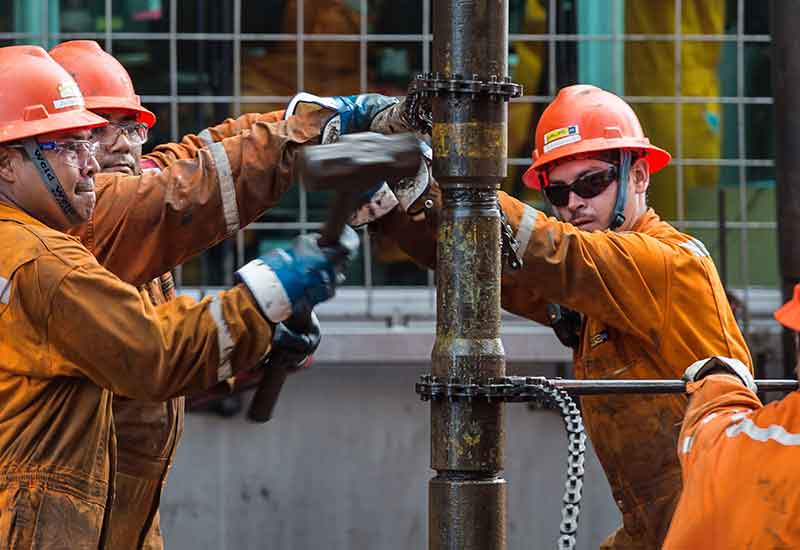For the Middle Eastern oil and gas sector, there’s a palpable sense of making hay while the sun shines. The prolonged price dip is over, and potential future headwinds relating to economic diversification and climate change have yet to have major impacts on the region. So, with the market in a relatively good place, the overriding sentiment is that now is the time to maximise production efficiency and revenues while investing in the future to make sure the good times can continue.
But what does that entail exactly? Investment in new production facilities and field exploration for sure – but the region’s national oil companies (NOCs) and their oilfield service partners also need to keep a tight rein on production, maximising uptime and minimising downtime of assets to optimise revenues and profits.
Many operators are finding that one of the surest guarantees of best practice is paying close attention to screening suppliers across the business so that only the best make the approved vendors list. So, what does that mean in practice?
Excellence in short supply
Basically, operators and service companies need to be able to rely on suppliers for technical and business excellence.
Take the niche of torque machines as an example. These units are used to make up and break out of threaded tubular connections. It’s an intricate process that requires finesse and extremely precise application of torque to get right. A loose or overtight connection could cause problems down the line, resulting in unnecessary downtime for remedial works. A seemingly minor process in the grand scheme of things can thereby result in costs and lost revenue numbering in the hundreds-of-thousands.
Previously this was a manually and time-intensive task with significantly variable accuracy. Older iterations of torque machines lacked the fine-control to handle connections with low torque requirements. More modern technology has improved accuracy, added that finesse and in doing so saved operators time and money.
Equally important is familiarity with the particular technical challenges the region offers. The Middle East can be a harsh environment, with temperatures commonly tipping north of 50 degrees celsius. Equipment built for benign environments may not fare as well here. With torque machines, for example, it’s always safer to locate power packs outside the main factory floor to reduce noise and avoid the operator standing over pressurised hoses and valves. However, older units often couldn’t cope with the heat, cutting out and forcing operators to wait for them to cool. Modern hydraulic power packs are far more heat tolerant.
The improved oil price has allowed operators to invest in new equipment, as well as spare parts for existing equipment. The net result is greater reliability and optimised production. This hasn’t been possible over the last couple of years, when operators were in an unenviable position between a rock and a hard place. When oil prices languish in the twenties and thirties per barrel, underinvestment in technology can impact the bottom line, but the bottom line rightly precludes investment, with all eyes fixed on staying operational.
Now, with those constraints lifted, operators are driving a boom in investment across the supply chain, which allows suppliers to invest in improving the technology they offer. A virtuous cycle has replaced a vicious one.
Worthy partners
The other ingredient in a successful supply chain relationship though, relates less to what business is being done than how it is done.
A transactional relationship with the cheapest supplier, based purely on price, may seem good business at the time. However, with all complex engineering applications, it is inevitable that certain critical things will eventually go wrong.
At this point, faced with the prospect of downtime and lost revenue, the quality of supply chain partners comes to the fore. If at all possible, remote technical assistance should be used to help the operator’s onsite engineering teams to resolve the issue and restart operations – especially important for often-remote Middle Eastern desert operations.
Then, if remote assistance isn’t possible, how responsive will the supplier be? Will they be on the next flight to the customer along with any necessary spare parts? Or will it be a case of placing an order and waiting days or weeks, all the time haemorrhaging significant revenue?
These considerations, not just around what’s being sold but the business practices of the company selling it, are coming increasingly to the fore. NOCs such as Saudi Aramco are becoming ever more exacting in what they expect from their approved suppliers. As they should be.
Whether it’s torque machines or any other niche part of the equation, success hinges on getting the supply chain right. Getting it wrong risks downtime and loss of revenue.





